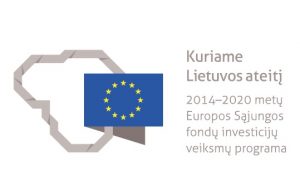„Children’s psychosocial development in the transition to secondary school: the role of friends and parents (NAVIGATE)“, Nr. 09.3.3-LMT-K-712-17-0009

Project No. 09.3.3-LMT-K-712-17-0009
Project title: „Children’s psychosocial development in the transition to secondary school: the role of friends and parents (NAVIGATE)”
Project duration: from 2020-05-04 to 2023-04-30
Project manager: prof. dr. Brett Laursen (Professor of Psychology, Florida Atlantic University)
Summary: The aim of the project is to identify individual differences in the risk and consequences of friendship instability among pupils transitioning from primary to secondary school.
Outcome: The mental health and well-being of children and young people is widely recognised as a key driver for positive living, and is strongly influenced by the everyday context in which children grow and develop. Friendships play an important role in a child’s psychosocial development, especially during the transition from primary to secondary school, as children can rely on the support, friendliness and advice of friends. Thus, friendships are an absolute prerequisite for healthy cognitive and social development and socialisation, as participation in social networks such as friendships enhances social and emotional competences and cognitive skills (Ybarre et al., 2008). However, there is limited knowledge in the literature on how adaptation in childhood and early adolescence relates to participation in successful friendships and, more importantly, on the causes and consequences of friendship dissolution. Therefore, our study aims to identify individual differences in the risk and consequences of friendship instability among students who transitioned from primary to secondary school. A follow-up 7-wave study involving about 700 children and some of their parents will reveal not only the longitudinal effects, but also the cross-sectional relationships between early peer relationships and emotional and behavioural adjustment in childhood. Particular attention will be paid to the home environment and the role of parents in the quality of friendships and the outcome of friendship dissolution. The proposed research will make a significant contribution to public health and improve the lives of many children who suffer from peer relationship difficulties, as parents, teachers and professionals will be able to gain a better understanding of why friendships break down and who is most affected by the negative consequences of the breakdown of friendships.
The project is funded by the European Social Fund under Measure 09.3.3-LMT-K-712 “Development of scientific excellence of scientists, other researchers and students through practical scientific activities” under the activity “Development of scientific excellence through brain gain and reintegration”. Grant agreement with the Lithuanian Research Council (LMT).